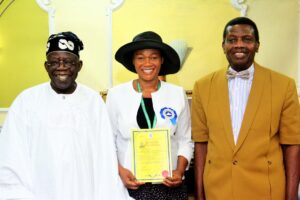Mega churches in Nigeria have become powerful political actors due to their ability to mobilize large groups of people and their considerable financial resources.
Their influence is felt in various spheres, including elections, policymaking, and social advocacy. Pastors of these churches often possess significant sway over their congregants, who view their religious leaders as moral and spiritual guides.
This trust can translate into political influence when these leaders endorse candidates or political causes.
1. Bishop David Oyedepo is one of Nigeria’s most influential pastors, with his church boasting millions of members worldwide. He is known for his outspoken views on national issues, often advocating for prosperity and good governance.
Although Oyedepo has never officially endorsed political candidates, his sermons often reflect his stance on political matters, indirectly guiding his followers’ political leanings.
2. Pastor Enoch Adeboye’s RCCG is one of the largest and fastest-growing Pentecostal churches in Nigeria. Adeboye’s cautious yet influential approach to politics involves promoting prayer for the nation and its leaders while subtly endorsing policies and candidates that align with his Christian values.
His annual Holy Ghost Congress attracts millions, including political figures seeking to connect with the electorate.
3. Pastor Chris Oyakhilome is known for his charismatic preaching and his church’s widespread influence through media channels like LoveWorld TV. Oyakhilome has been vocal about political issues, encouraging his followers to participate in the electoral process.
His international reach also amplifies his political influence beyond Nigeria’s borders.

While these leaders may not overtly affiliate themselves with political parties, their endorsements, whether explicit or implicit, can significantly impact elections.
For instance, during election periods, politicians often seek the endorsement of these influential pastors to gain favor with their massive congregations. This trend highlights the relationship between religion and politics in Nigeria, where religious leaders serve as key opinion leaders and gatekeepers.
Despite their significant socio-political influence, Nigerian mega churches should maintain a clear separation from politics to preserve their spiritual mission, avoid partisan polarization, and uphold democratic principles.
Political involvement can compromise their integrity, foster divisions within congregations, and expose them to corruption. By remaining apolitical, these churches can focus on providing essential social services and serve as impartial moral beacons, advocating for justice without bias.




